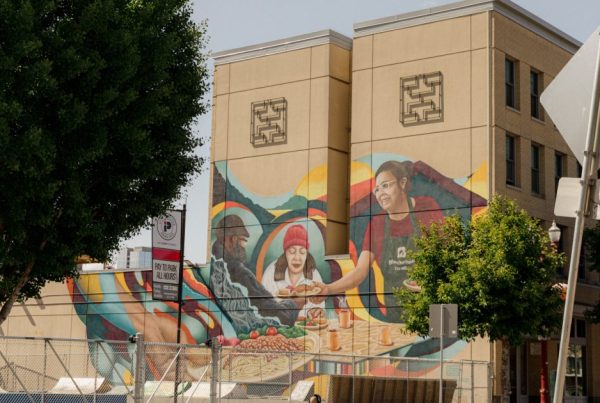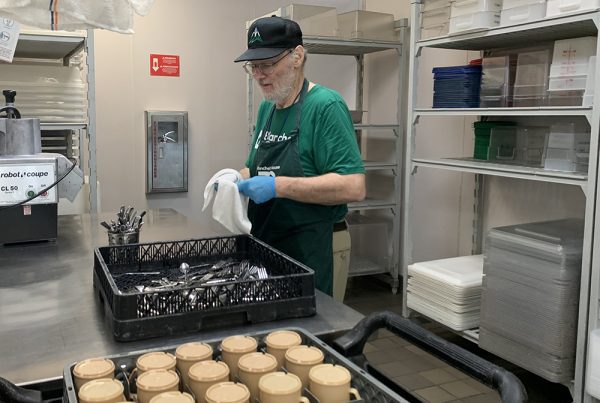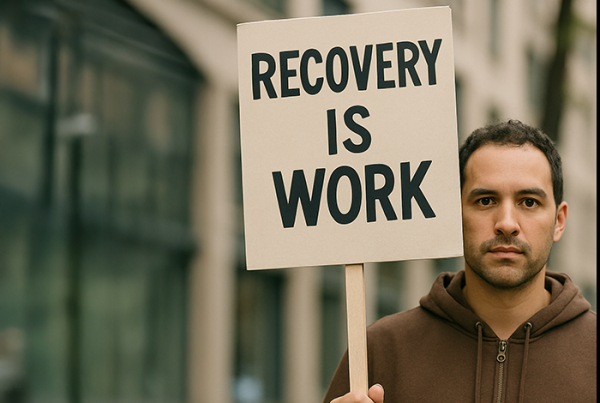Being treated with less respect because of your race, religion, or ethnicity can increase a person’s feelings of being lonely. And feeling alone can have negative effects on your well-being.
By Miranda Manzano
Manny C., 52, was a diner at Blanchet House of Hospitality before he came to live there. On his bike ride to work in Portland’s Old Town, he would swing by the cafe for a free hot breakfast served by friendly volunteers. He sometimes stopped again on his way home to enjoy dinner and conversation.
“A human being does not need just bread and water,” Manny says. “You need human interaction just as much as shelter, as much as food and water and clothing.”
The nearby house in which Manny rented a room was not a suitable home. Infested with pests and violent roommates as well as a heavy presence of drugs, it was unsafe. It was all Manny could afford. He felt totally alone.
After a long day at work, stopping at Blanchet House for dinner was a reprieve from his unpleasant living conditions.
“I just didn’t know what to do. I don’t want to go back to that place that I lived in,” he recalls. “Rent is just too much. I tried playing the game. I just gave up. The only places I could afford were not fit for humans.”
Manny has never had a problem holding a job, most recently as a security guard. Despite his steady paycheck, housing options were severely limited. A safe and clean room was impossible to find and he couldn’t afford to rent an apartment on his income alone. The average rent for a one-bedroom apartment is around $1,153 according to a report by The Oregonian.
After six months of getting to know the welcoming staff at Blanchet House as a meal guest, Manny learned about the transitional housing offered in the rooms above the cafe. He was accepted into the residential program a year ago.
As a resident of Blanchet House, he has a safe, friendly, and sober place to live while he saves money and looks for better housing conditions.
“I don’t know what I would be doing, I certainly could not have afforded to live somewhere else,” Manny said. “It would have been another shelter, or in the streets.”
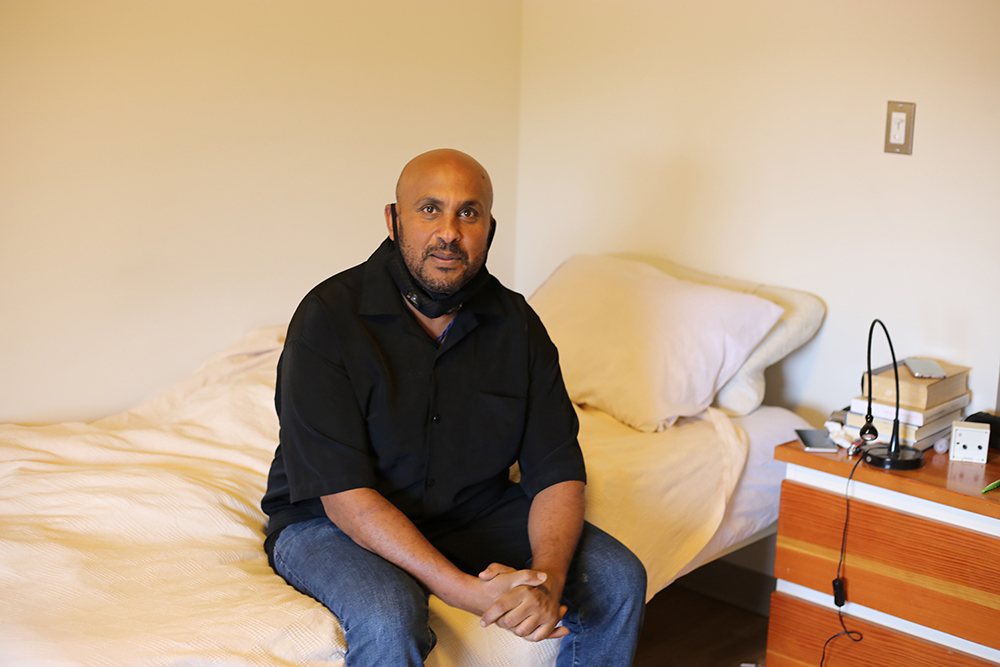
Manny C. in his room at Blanchet House.
Isolation Lead to Drinking
Previous challenges led to Manny’s struggles with loneliness and alcoholism. He used alcohol as a shield against being ostracized and discriminated against.
Manny’s family moved to Portland from Eritrea in Eastern Africa when he was in the seventh grade. He was successful in school and graduated from Oregon State University with a degree in financial management.
In spite of his academic success, Manny’s experiences in this country have been framed by racism and xenophobia since the beginning.
“I was a kid and I didn’t speak English well enough to know what they meant, but you can see their expressions,” Manny recalls of hearing racial slurs.
In 1988, Manny’s family friend Mulugeta Seraw, a fellow East African immigrant, died after a group of white men he didn’t know yelled racial slurs at him, then fatally beat him with a baseball bat.
“The weirdest part is that one of the guys who got arrested for being involved went to school with me in 7th grade,” Manny says. “He used to play soccer with us.”
As an adult, his work managing gas station stores took him to small towns along the I-5 corridor. He had a good job and stable finances, but his social life was marred by what Manny called, “small town encounters.”
The racism and harassment he experienced as a Black man meant Manny spent much of his time alone and afraid to socialize. Getting pulled over by police in rural towns for no reason, people coming into work and making comments about him being different, and hearing racial slurs behind his back at bars.
“It just made it a little more difficult. I drank out of loneliness and boredom,” Manny said. “Since I drink something, I no longer care if somebody is talking to me or not.”
Fed up with these encounters Manny moved back to Portland, but reconnecting with family and finding a new job in his field was challenging and fueled the cycle of drinking and depression.
A Time to Start Anew
“Blanchet House enabled me to re-group, enabled me to stay sober,” Manny said.
As a resident of Blanchet House Manny is part of a recovery community. He has a network of connections and peers and friends. He has space to continue his sobriety and to take care of his health.
Like all residents, Manny worked in the café that once brought him so much comfort. Though the indoor dining room is temporarily closed as a COVID precaution, he is part of the team that serves to-go meals from the doors to people experiencing homelessness.
“Most of those people that you see on the street talking to themselves or screaming at anybody,” Manny says. “They lack that social interaction. I don’t think it’s just drugs and alcohol. They need human contact.”
He’s started a new full-time job with regular hours leaving him time to visit his mother on the weekends.
“If you’re just trying to get your life together, there’s nothing better,” Manny said. “Without Blanchet House, I don’t know what I would be doing.”
Next year, Manny is planning to move into an apartment with another resident of Blanchet House he befriended.
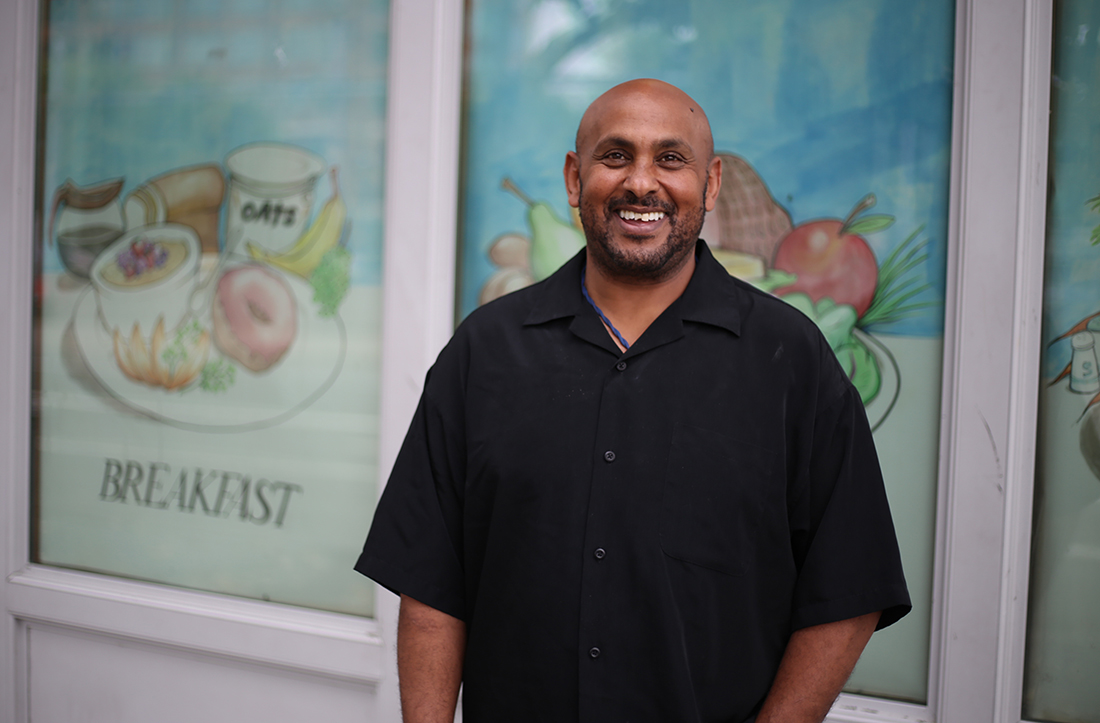
Free Supportive Housing Because of You
Blanchet House and Blanchet Farm are free to all because of generous donations from individuals like you. Help someone gain sobriety, stability, and health by donating to Blanchet House. Thank you for caring. Donate Here.














